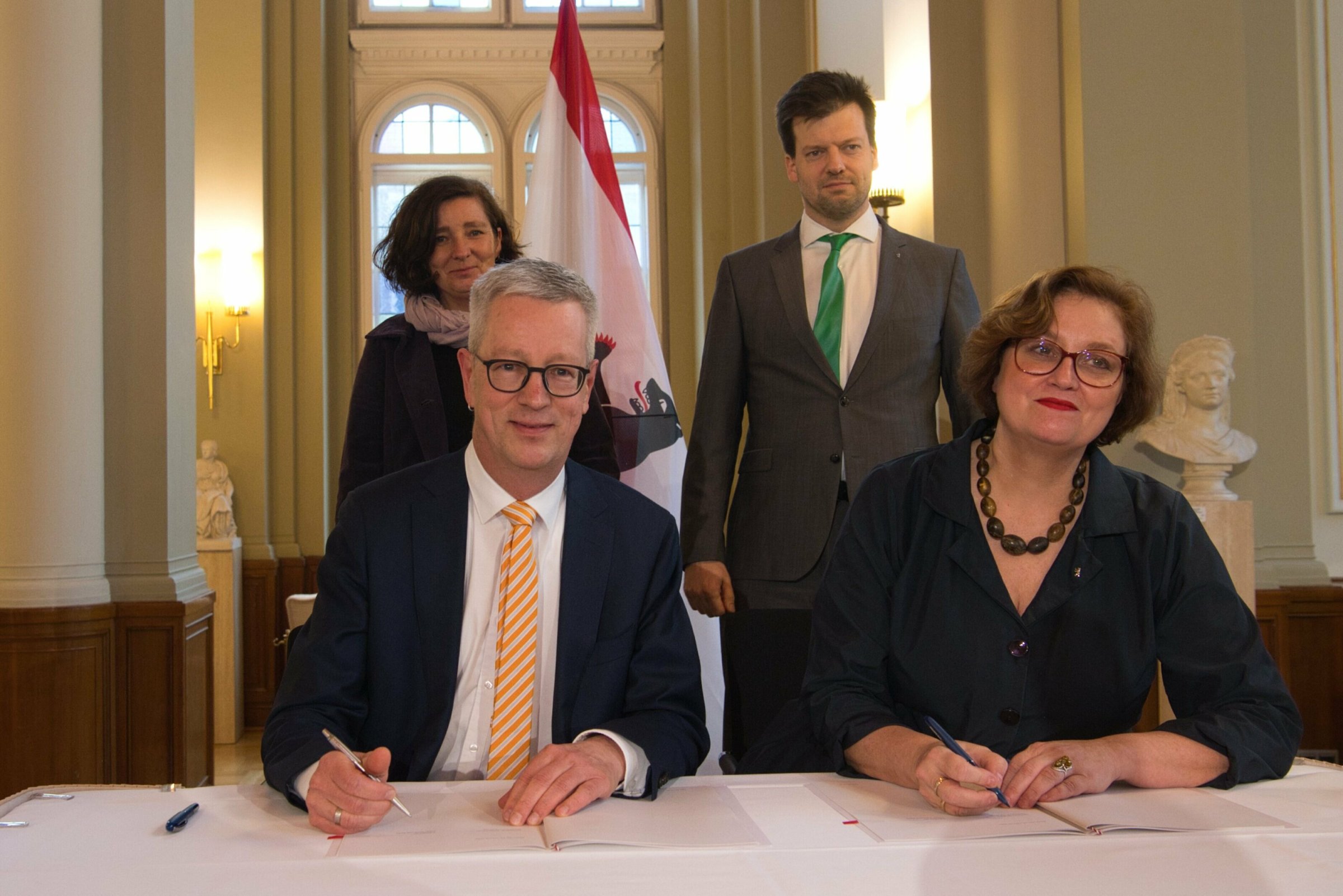Rector and President of the University Rectors' Conference, Günter M. Ziegler and Science Senator Ena Chibura (SPD) sign university contracts
Photography: DPA/Paul Zinkin
The end of a long road: Negotiations over university contracts continued for more than a year and a half. In between, the House of Representatives elections were repeated, causing them to be interrupted for several months. Now the contracts have been officially finalized: on Friday, university rectors and Science Senator Ina Cipora (SPD) signed the contract regulating the financing of Berlin's eleven public universities. The central component has already been negotiated long ago: subsidies must increase by five percent each year over the five-year contract period. Ultimately it should be 1.85 billion, which universities can use largely freely within the scope of their statutory functions. As before, part of the grant will be paid as a base amount, and the other part will be paid depending on whether target numbers are achieved in areas such as equality or third-party funding is obtained.
Teacher training, on the other hand, has been more controversial. The teacher shortage is already posing challenges for schools. In the future, universities are expected to send 2,500 teaching graduates to schools every year – the figure was recently less than half that number. In return, the Senate is developing a funding program to support universities in expanding their capabilities.
The new contracts also provide more incentives for long-term employment at universities. Currently, the majority of faculty members below the rank of professor are employed on a temporary basis. In the future, it should be possible to reduce support if at least 40 percent of the scientific staff are not employed on a permanent basis. However, we are still a long way from the requirement to generally employ postdoctoral researchers on a permanent basis, which was still enshrined in the Higher Education Act under the Red-Green-Red coalition.
After the contract was signed, the Senate and the Universities were filled with self-praise. “The promised increase in core funding is an important signal, especially in times of tight budgets,” said Alami Senator Chibura. “University contracts give universities the much-needed financial planning security so that they can meet their research and teaching missions and meet social challenges,” agreed University President Günther M. Ziegler. However, criticism came from the School Must Be Different initiative: the agreed target numbers for teacher training were set too low. “Berlin State continues to offer training that is in significantly lower demand,” says a press release.
#ndstays – Be active and request a promo package

No matter whether it's bars, cafes, festivals or other meeting places – we want to become more visible and reach everyone who values independent journalism with an attitude. We've put together a campaign pack containing posters, flyers, stickers and buttons you can use to get active and support your newspaper.
To the promotional package

“Alcohol buff. Troublemaker. Introvert. Student. Social media lover. Web ninja. Bacon fan. Reader.”







More Stories
What is dark matter? This phenomenon is explained simply
Consciousness in animals: and they still feel
Question for information – What is the impact of climate change on migratory birds?